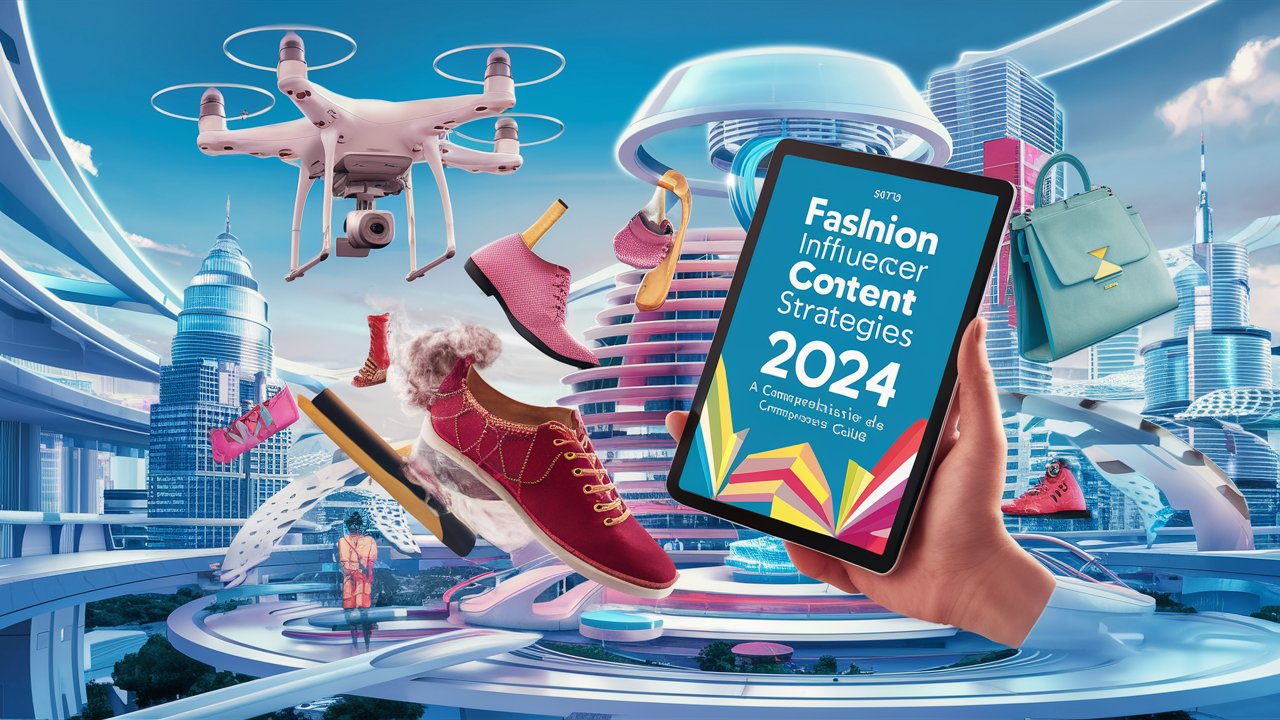As we navigate through 2024, artificial intelligence (AI) continues to transform industries across the globe. One of the most dynamic areas where AI is making a significant impact is in fashion influencer marketing. This article explores the impact of AI on fashion influencer marketing in 2024, shedding light on how AI tools and technologies are reshaping the landscape. From enhancing personalization to optimizing campaign performance, AI is revolutionizing the way fashion brands collaborate with influencers.
How AI is Enhancing Personalization in Fashion Influencer Marketing
AI’s ability to analyze vast amounts of data allows for unprecedented levels of personalization in fashion influencer marketing. This personalization is crucial for creating authentic and engaging content that resonates with target audiences.
Tailored Influencer Recommendations
AI algorithms can analyze influencer profiles, including their follower demographics, engagement rates, and content style. By leveraging this data, AI tools provide fashion brands with tailored influencer recommendations. This ensures that brands partner with influencers who align closely with their target audience and campaign objectives. For instance, tools like Influencity offer detailed insights into influencer performance metrics, helping brands make informed decisions.
Customized Content Creation
AI also plays a pivotal role in customizing content. By analyzing trends and audience preferences, AI can assist influencers in creating content that is more likely to engage their followers. This includes suggesting optimal posting times, content themes, and even specific visual elements. Consequently, fashion brands benefit from content that is highly relevant and appealing to their target market.
Optimizing Campaign Performance with AI
The use of AI in fashion influencer marketing extends beyond influencer selection and content creation. It significantly enhances the way campaigns are monitored and optimized.
Real-Time Analytics
AI-driven analytics tools provide real-time insights into campaign performance. These tools track various metrics such as engagement rates, reach, and conversions. By analyzing this data, fashion brands can quickly identify what is working and what needs adjustment. This agile approach allows for immediate optimization of campaigns, ensuring that marketing efforts are always aligned with desired outcomes.
Predictive Analysis for Future Campaigns
Moreover, AI’s predictive capabilities are invaluable for future campaign planning. By analyzing historical data and current trends, AI can forecast the potential success of different campaign strategies. This predictive analysis helps fashion brands make data-driven decisions, improving the effectiveness of future influencer marketing efforts.
Enhancing Influencer-Brand Collaboration through AI
AI also transforms how fashion brands and influencers collaborate. It facilitates more efficient and effective partnerships, leading to better campaign outcomes.
Streamlined Communication
AI-powered platforms streamline communication between fashion brands and influencers. Automated systems handle tasks such as contract management, payment processing, and campaign briefings. This efficiency not only saves time but also reduces the likelihood of errors and miscommunications. For example, Traackr offers a comprehensive influencer relationship management platform that integrates these functionalities.
Data-Driven Insights for Better Collaboration
AI provides valuable data-driven insights that enhance collaboration. By analyzing past campaign performance and influencer engagement, AI tools offer recommendations for optimizing future collaborations. These insights enable fashion brands to provide influencers with more targeted briefs and creative direction, leading to more successful and impactful partnerships.
The Role of AI in Measuring Influencer Impact
Understanding the impact of influencer marketing campaigns is crucial for assessing their effectiveness. AI offers sophisticated tools for measuring and analyzing this impact.
Advanced Metrics and KPIs
AI tools generate advanced metrics and key performance indicators (KPIs) that go beyond basic engagement statistics. These include sentiment analysis, brand lift, and ROI calculations. By providing a deeper understanding of campaign performance, AI helps fashion brands gauge the true impact of their influencer marketing efforts.
Sentiment Analysis and Audience Feedback
Sentiment analysis powered by AI can assess how audiences perceive influencer content. This analysis helps fashion brands understand the emotional response to their campaigns, providing insights into brand perception and consumer sentiment. Tools like Brandwatch offer robust sentiment analysis capabilities, allowing brands to fine-tune their strategies based on audience feedback.
Challenges and Considerations in AI-Driven Influencer Marketing
While AI offers numerous benefits, there are also challenges and considerations that fashion brands should be aware of.
Data Privacy and Security
The use of AI involves handling vast amounts of data, which raises concerns about data privacy and security. Fashion brands must ensure that AI tools comply with data protection regulations and implement robust security measures to safeguard sensitive information. Compliance with regulations such as GDPR is essential to avoid legal issues and maintain consumer trust.
Balancing AI and Human Creativity
Although AI enhances efficiency, it is important to balance technological advancements with human creativity. AI tools should complement, not replace, the creative input of influencers and marketing teams. The human touch remains crucial for crafting authentic and compelling content that resonates with audiences on a personal level.
Future Trends: AI and Fashion Influencer Marketing
Looking ahead, AI is likely to continue shaping the future of fashion influencer marketing in innovative ways.
Integration of Augmented Reality (AR)
The integration of AI with augmented reality (AR) is expected to create new opportunities for fashion influencer marketing. AR experiences, powered by AI, can offer immersive and interactive content that engages audiences in novel ways. For instance, virtual try-ons and interactive fashion shows can enhance the shopping experience and drive brand engagement.
Evolution of AI-Powered Influencer Platforms
AI-powered influencer platforms will continue to evolve, offering more advanced features and capabilities. These platforms will become increasingly sophisticated in matching brands with influencers, optimizing campaigns, and measuring performance. As technology progresses, fashion brands will benefit from even more precise and effective influencer marketing solutions.
Conclusion
In 2024, the impact of AI on fashion influencer marketing is profound and multifaceted. From enhancing personalization and optimizing campaign performance to improving collaboration and measuring impact, AI is revolutionizing the way fashion brands engage with influencers. As AI technology continues to advance, fashion brands must stay informed about the latest developments and trends to leverage AI effectively in their influencer marketing strategies. Embracing these innovations will help brands create more engaging and successful influencer campaigns in the ever-evolving fashion industry.
